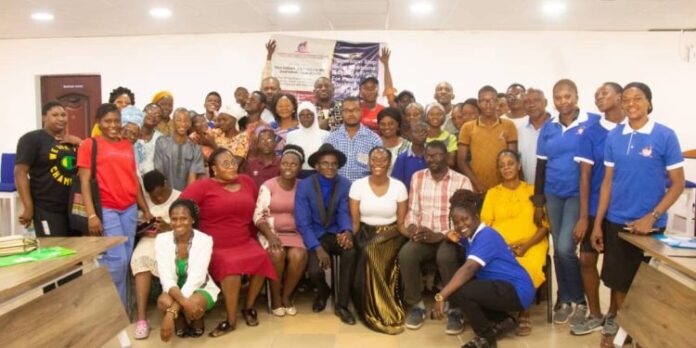In a groundbreaking move, Solomon Okelola, the visionary president of Lionheart Ability Leaders International Foundation (LALIF), has taken the lead in championing the establishment of rehabilitation and vocational training centers tailored specifically for individuals facing deaf-blindness. The initiative aims to empower this community, providing them with the education and skills necessary for seamless integration into society.
The inaugural gathering of individuals with deaf-blindness, held in the vibrant city of Lagos and supported by the Disability Rights Fund, marked a pivotal moment in acknowledging and addressing the challenges faced by this unique group. Okelola emphasized the crucial need for educational and vocational opportunities designed to cater to their distinct needs, shedding light on the obstacles hindering their access to learning and skill development.
Expressing concern over the absence of dedicated schools for individuals with deaf-blindness in the country, Okelola lamented the prevailing misconceptions among parents that have led to the unfortunate belief that these individuals cannot learn, resulting in their isolation indoors.
“With today’s gathering, they have come to realize they are not alone. They recognize the importance of uniting as a collective voice to advocate for the interests of individuals with deaf-blindness in Lagos State and Nigeria as a whole,” Okelola stated passionately, revealing plans to officially register the association of persons with deaf-blindness as a distinct disability cluster in Nigeria, with a launch expected later this year, possibly in September.
The ambitious president disclosed ongoing efforts to establish a learning center dedicated to meeting the educational and skill development needs of individuals with deaf-blindness. “By the end of this year, we anticipate having a center where individuals with deaf-blindness can gain knowledge and skills,” he added optimistically.

During the event, Adenike Oyetunde-Lawal, the dynamic General Manager of the Lagos State Office for Disability Affairs (LASODA), shared exciting developments in the state’s commitment to amending the special people’s law to meet the emerging needs of the disability community. She urged the newly formed cluster to provide input, ensuring that the amended law comprehensively addresses the specific needs of this emerging disability cluster.
“We are working towards placing sign language interpreters in general hospitals before extending to primary health centers,” Oyetunde-Lawal announced, emphasizing the state’s dedication to improving service delivery for individuals with special needs.
As this initiative gains momentum, it not only strives to create a supportive community for individuals with deaf-blindness but also aims to create lasting changes in legislation and infrastructure, ensuring a more inclusive and accessible society for all. Stay tuned for updates on this groundbreaking movement as it unfolds its transformative journey in the heart of Lagos.


